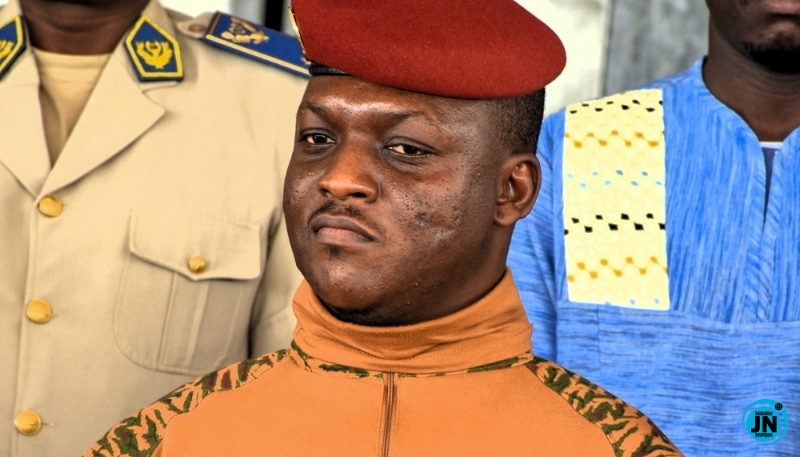Burkina Faso’s military leader, Captain Ibrahim Traore, has taken significant political action by dismissing Prime Minister Apollinaire Joachim Kyelem de Tambela and dissolving the government, according to a presidential decree obtained by AFP on Friday. The decree, which did not provide any specific reasons for the decision, stated that members of the dissolved government would "continue ongoing business until a new government is formed." This abrupt change has left the nation and international observers speculating about the reasons behind this move.
Prime Minister Kyelem de Tambela had served since October 2022, following Captain Traore's coup that ousted former leader Lieutenant-Colonel Paul-Henri Sandaogo Damiba. Despite facing three cabinet reshuffles, Kyelem de Tambela had managed to retain his position until his sudden dismissal. The official decree announced, "The prime minister's official functions are terminated," and the news has sparked widespread curiosity about the implications for the country’s future leadership.
Burkina Faso has been grappling with significant political instability since January 2022 when Lieutenant-Colonel Damiba overthrew the country's elected president, Roch Marc Christian Kabore. However, Damiba's rule was short-lived, and Captain Traore ousted him in a coup just eight months later, further plunging the country into political uncertainty.
In addition to the internal political turmoil, the country faces a worsening security situation due to escalating jihadist violence that has claimed over 26,000 lives and displaced nearly two million people since 2015. The violence, largely attributed to Islamist insurgents, has caused widespread devastation and forced many to flee their homes, exacerbating the humanitarian crisis.
Under Captain Traore’s leadership, Burkina Faso has made a notable shift in foreign policy. The country has distanced itself from its former colonial ruler, France, and sought to build stronger ties with Russia instead. Foreign Minister Karamoko Jean-Marie Traore recently emphasized that Russia’s partnership “better suits” Burkina Faso’s needs. This new alignment aligns with the broader regional shift as Burkina Faso, along with Mali and Niger, formed the Alliance of Sahel States (AES) in September, signaling a break from traditional alliances and forging closer ties with Russia.
The Sahel region, including Burkina Faso, Mali, and Niger, has been deeply affected by jihadist insurgencies that began in northern Mali in 2012 and have spread across the region. As a result, these three nations have severed ties with France and left the Economic Community of West African States (ECOWAS), accusing the bloc of being influenced by Paris. The military juntas in these countries are working together to address the growing jihadist threat and have invited Russian military instructors to assist in their efforts to combat the insurgents.

The situation in Burkina Faso and the broader Sahel region remains volatile, with the escalating violence and shifting political dynamics raising concerns about the future stability of the area. The international community is closely monitoring developments, especially given the growing influence of Russia in the region and the challenges posed by jihadist groups. As Burkina Faso navigates its internal political changes and external alliances, it faces a challenging road ahead in addressing both its security concerns and political instability.

